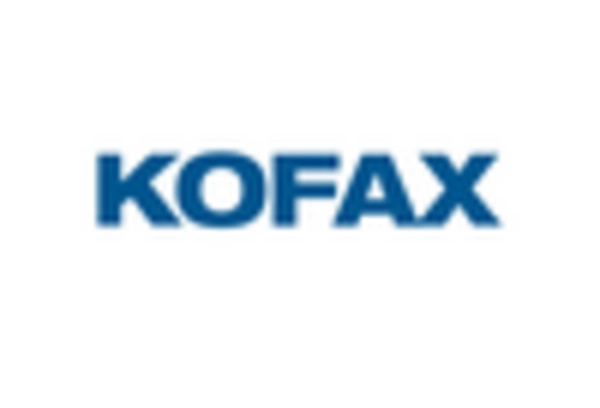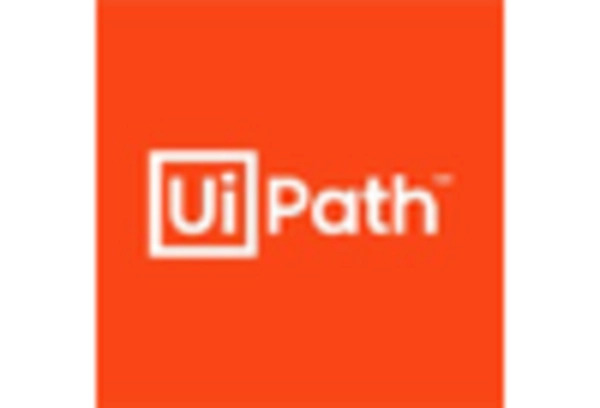Regulatory Compliance Pressures
In Germany, the intelligent document-processing market is significantly influenced by stringent regulatory compliance requirements. Organizations are compelled to adhere to various laws and regulations, such as the General Data Protection Regulation (GDPR), which mandates strict data handling and processing protocols. As a result, companies are increasingly investing in intelligent document processing solutions to ensure compliance and mitigate risks associated with data breaches. It is projected that by 2026, compliance-related investments in document processing technologies will account for approximately 25% of the total market expenditure. This trend underscores the critical role of intelligent document processing in helping organizations navigate complex regulatory landscapes while maintaining operational efficiency.
Shift Towards Cloud-Based Solutions
The intelligent document-processing market in Germany is experiencing a marked shift towards cloud-based solutions. Organizations are increasingly adopting cloud technologies to enhance scalability, flexibility, and accessibility of document processing systems. This transition is driven by the need for remote work capabilities and the desire to reduce infrastructure costs. By 2025, it is estimated that over 50% of document processing solutions in Germany will be cloud-based, reflecting a broader trend towards digitalization. Cloud-based intelligent document processing not only allows for real-time collaboration but also facilitates seamless integration with other cloud applications, thereby enhancing overall operational efficiency. This shift is likely to reshape the competitive landscape of the market.
Increased Focus on Customer Experience
In the intelligent document-processing market, there is a growing focus on enhancing customer experience in Germany. Organizations are recognizing that efficient document processing directly impacts customer satisfaction and retention. By streamlining document workflows and reducing processing times, companies can provide faster and more reliable services to their clients. It is projected that by 2026, businesses that prioritize customer experience through intelligent document processing will see a 30% increase in customer retention rates. This trend highlights the importance of adopting intelligent document processing solutions that not only improve internal efficiencies but also contribute to a more positive customer interaction, ultimately driving business growth.
Growing Need for Enhanced Data Analytics
The intelligent document-processing market in Germany is witnessing a growing emphasis on enhanced data analytics capabilities. As organizations generate vast amounts of data, the ability to extract actionable insights from documents becomes paramount. Intelligent document processing solutions are increasingly being integrated with advanced analytics tools to facilitate data-driven decision-making. In 2025, it is anticipated that around 40% of companies in Germany will leverage these technologies to improve their analytical capabilities. This trend not only aids in optimizing business processes but also enhances customer experiences by providing tailored services based on data insights. Consequently, the demand for intelligent document processing solutions that incorporate robust analytics features is likely to rise.
Rising Demand for Digital Transformation
The intelligent document-processing market in Germany is experiencing a notable surge in demand driven by the ongoing digital transformation across various sectors. Organizations are increasingly recognizing the need to streamline operations and enhance efficiency through automation. In 2025, it is estimated that over 60% of German enterprises will prioritize digital solutions, including intelligent document processing, to improve workflow and reduce manual errors. This shift is particularly evident in industries such as finance and healthcare, where the volume of documents is substantial. The push for digital transformation not only facilitates better data management but also aligns with the broader trend of adopting innovative technologies to remain competitive in the market.
















